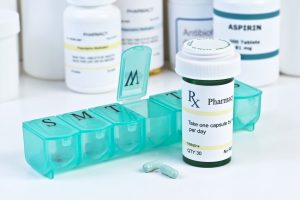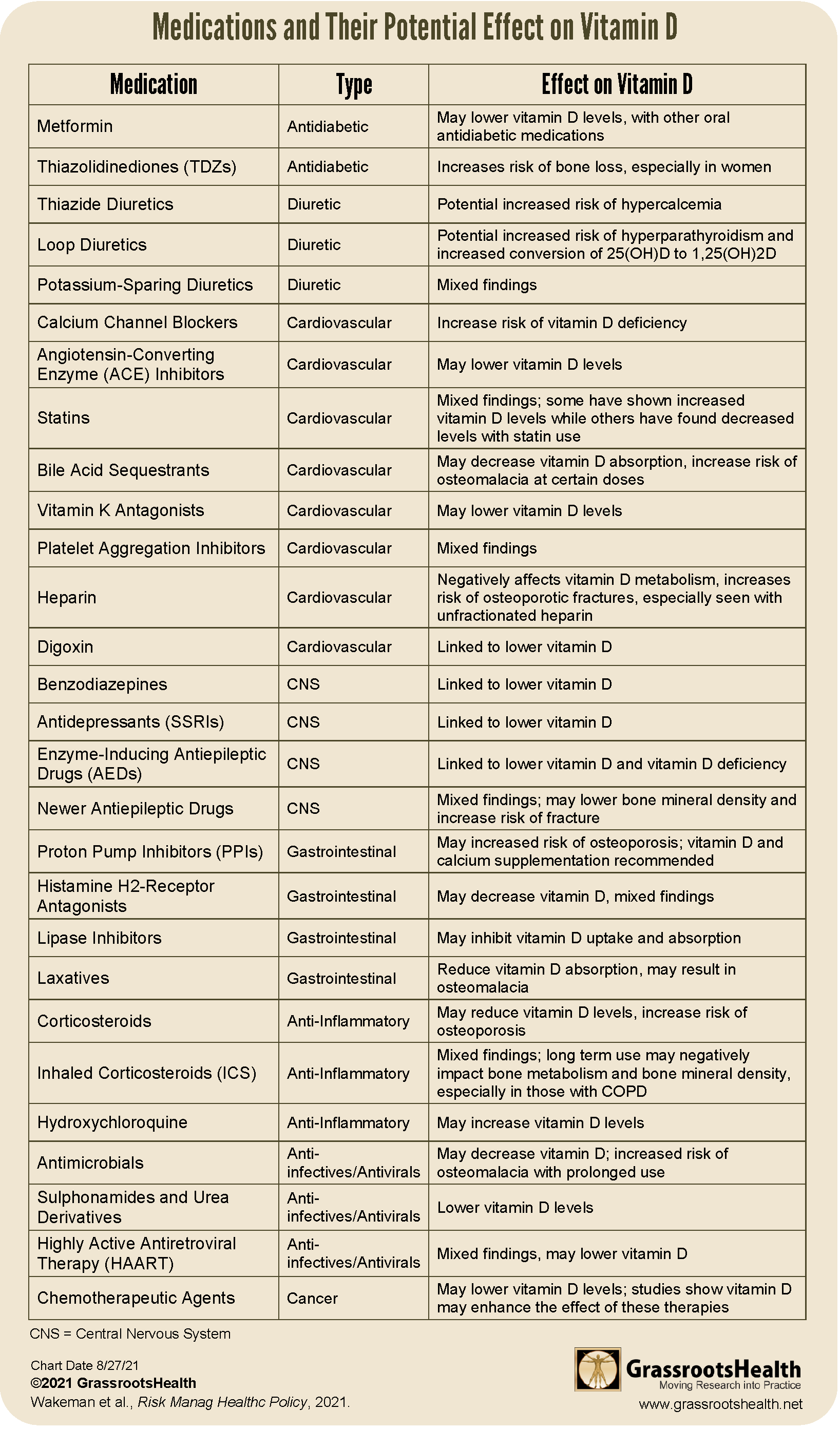Published on November 4, 2022
Certain medications can alter vitamin D metabolism and status, making measuring vitamin D levels especially important for those taking these meds
 There are several factors that can affect vitamin D levels for individuals, besides vitamin D intake and sun exposure, including a person’s age, skin color, genetics, where they live, and certain chronic diseases. Digestive disorders can decrease the absorption of vitamin D, resulting in a lower vitamin D level, as can a lack of specific co-nutrients, such as magnesium. Also, some medications including statins, prednisone and weight-loss drugs, can block vitamin D absorption and/or metabolism, increasing the risk of low vitamin D levels and vitamin D deficiency.
There are several factors that can affect vitamin D levels for individuals, besides vitamin D intake and sun exposure, including a person’s age, skin color, genetics, where they live, and certain chronic diseases. Digestive disorders can decrease the absorption of vitamin D, resulting in a lower vitamin D level, as can a lack of specific co-nutrients, such as magnesium. Also, some medications including statins, prednisone and weight-loss drugs, can block vitamin D absorption and/or metabolism, increasing the risk of low vitamin D levels and vitamin D deficiency.
How Can Medications Impact Vitamin D Levels?
There are several ways in which medications may affect the absorption, metabolism, and regulation of vitamin D. For example, the same enzyme (25-hydroxylase CYP3A4) that metabolizes about half of all medications is responsible for transforming supplemental vitamin D3 and D2 to 25(OH)D. Also, since vitamin D is a fat-soluble vitamin, certain medications that block dietary fat absorption or enhance its elimination may also have a negative effect on vitamin D absorption, therefore increasing the risk of deficiency.
More People Taking Multiple (5 or More) Medications at a Time
With an increased number of medications taken by an individual concurrently, the risk of those medications having an effect on their vitamin D level also increases. According to a review by Wakeman, M, there has been a significant increase over the past couple decades of individuals taking five or more medications at any given time. This is especially prevalent among the elderly (those ages 65 years and older). In fact, in the UK alone, the percentage of elderly taking five or more medications increased from 12% to 49%; a 4-fold increase over two decades. This increased use of medication among the elderly is especially concerning, since the risk of vitamin D deficiency increases with age.
One study in particular looked at the relationship between the risk of vitamin D deficiency and the number of medications being taken among 1000 community-dwelling Dutch citizens. 49% of the population was vitamin D deficient, with levels below 20 ng/ml or 50 nmol/L. When looking at levels among those who did not take a vitamin D supplement, the use of multiple medications was found to be a significant factor in negatively affecting vitamin D levels.
What Medications Might Affect Vitamin D?
The table below contains a list of medications and their potential effects on vitamin D, as reviewed by Wakeman.
Importance of Measuring Vitamin D When on Certain Medications
In conclusion, the authors stress the importance of monitoring vitamin D levels and supplementing as necessary “with the objective of achieving adequate levels of vitamin D while also optimizing the efficacy of treatment and limiting drug side-effects and toxicity.”
Are Your Vitamin D Levels OK?
 Having and maintaining healthy vitamin D levels and other nutrient levels can help improve your health now and for your future. Choose which to measure, such as your vitamin D, omega-3s, and essential minerals including magnesium and zinc, by creating your custom home test kit today. Take steps to improve the status of each of these measurements to benefit your overall health. You can also track your own intakes, symptoms and results to see what works best for YOU.
Having and maintaining healthy vitamin D levels and other nutrient levels can help improve your health now and for your future. Choose which to measure, such as your vitamin D, omega-3s, and essential minerals including magnesium and zinc, by creating your custom home test kit today. Take steps to improve the status of each of these measurements to benefit your overall health. You can also track your own intakes, symptoms and results to see what works best for YOU.
Enroll and test your levels today, learn what steps to take to improve your status of vitamin D (see below) and other nutrients and blood markers, and take action! By enrolling in the GrassrootsHealth projects, you are not only contributing valuable information to everyone, you are also gaining knowledge about how you could improve your own health through measuring and tracking your nutrient status, and educating yourself on how to improve it.






